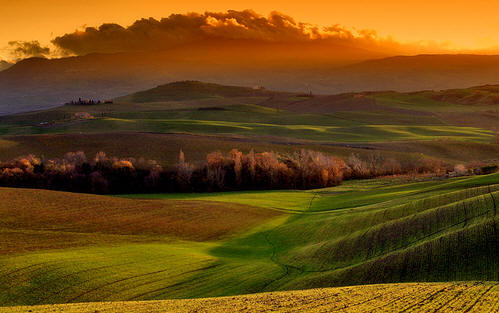A Quick Guide to Natural, Biodynamic and Organic Wine
Want to complement the organic food on your table with some fine organic wine? Not sure about what to look for or what organic wine really means? Here’s a short introduction to the world of naturally produced wines…
Not all wines are created equally and the vast majority of what we find in our local supermarkets is mass-produced on an industrial scale. This means that all phases of production, from the farming of the vineyard to the wine making process are characterized by the use of chemical agents.
Toxic grapes?
Under current EU laws, more than 50 additives are allowed in wines, with the USA and New World regulations adding a few more to the list. Sulphites and other chemical ingredients are among those added to balance the flavour of the wine and to guarantee longer conservation whilst an array of insecticides, pesticides, fungicides, herbicides and artificial fertilisers are used on the vines, in the soil and in the water. Grapes are actually one of the crops that receive the heaviest application of chemicals.
Without doubt these chemical practices are damaging, not just for the environment and for the drinkers health, but for the wine as well, which loses its natural taste. The good news for consumers is that it is getting much easier to drink a glass of ‘chemical free’ wine produced in an environmentally friendly way.
A healthier alternative
Quality wines produced by natural methods fall into the three main categories. Organic wine is the most common of these, with biodynamic and natural wine a step further on and a little more difficult to source. Here’s a brief look at the differences between organic, biodynamic and natural wine.
Organic wine
Organic wine is the only category governed by laws and by certification. European Regulation establishes that “organic wine” must be produced using organic grapes, meaning that the use of chemical fertilizers is strictly forbidden and only a determined level of sulphites is allowed in the organic wine-making process. It’s important to note that sulphites are also a naturally occurring byproduct of the fermentation process, so most wines will contain a minute trace of natural sulphites.
Pest control is achieved by encouraging biodiversity. Flowering plants like clovers, vetch and mustards are sown between the rows to attract beneficial insects which naturally control pests.
Organic production is by necessity more labour intensive and ‘hands on’. When you buy organic you are buying something that is, in many ways, ‘hand crafted’.
Biodynamic wine
Biodynamic wine is made using the principles of biodynamic agriculture developed by Rudolf Steiner in the 1920’s. Biodynamic is similar to organic farming in that both take place without chemicals, but biodynamic farming incorporates ideas about a vineyard as an ecosystem, and also accounting for astrological influences and lunar cycles. A biodynamic wine means that the grapes are farmed biodynamically, and that the winemaker did not make the wine with any common manipulations such as yeast additions or acidity adjustments. A wine “made from biodynamic grapes” means that a vintner used biodynamically grown grapes, but followed a less strict list of rules in winemaking. Generally speaking biodynamic wines contain considerably lower levels of sulphites.
Natural wine
Producers of natural wine say that the grapes used in natural winemaking should be grown either organically or biodynamically, and that they should be hand-harvested as opposed to machine-harvested.
Natural wines are fermented with native or wild yeasts that grow on the skins of grapes rather than commercially produced foreign yeasts, in keeping with the theory that the less you add to the wine, the better and more authentic it will taste. In addition, natural wines are typically unrefined and unfiltered. This may leave the wine a bit cloudy in appearance, and can contribute to the complexity of the wine’s texture. Finally, natural winemaking prohibits the use of added sugar or acids to adjust a wine’s flavour or to correct a wine that was grown in less than optimal climatic conditions.
An added dimension?
So do naturally produced wines actually taste better than their mass produced counterparts? Most people who have tried organic, biodynamic or natural wines will tell you that they are converts; once bitten by the natural wine bug, they find it hard to go back to commercially produced wines. Not only do they taste better and seem to have an added dimension, they are better for your health and of course for the environment.


